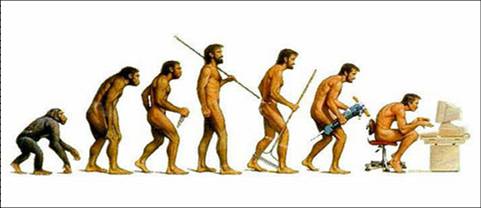Samsung Electronics Co. 005930.SE -1.38% unveiled its fourth-generation Galaxy S smartphone in New York, capping the company's yearlong effort to strengthen its software capabilities to better compete with Apple Inc. AAPL +0.97%
Compare Smartphones
See a side-by-side comparison of the specifications of recent phones, including the Galaxy S 4.Smartphone Wars
Explore features of more smartphones, including the Galaxy S 4.The phone includes temperature and humidity sensors, as well as one designed to automatically monitor one's health.
The South Korean company also released an iTunes-like media-content service called Samsung Hub, where users will be able to purchase and download videogames, books, music and videos. Apple has long been able to attract more users to its iPhones in part because of the popularity of its ecosystem of content that works seamlessly with its devices.
In terms of hardware, the Android-based phone comes with a 5-inch screen, slightly larger than the previous model's 4.8 inches, and a body that is a touch thinner, at 0.31 inch. It weighs 130 grams, runs on a faster chip and has a 13-megapixel camera that allows rear and front cameras to take simultaneous photos and videos. The phone will connect to next-generation LTE networks and has capability to connect to higher speed Wi-Fi networks.
Samsung will roll out the smartphone globally starting in late April, but a price wasn't disclosed. The phones will launch in 155 countries including in the U.S. through carriers AT&T Inc., T +0.71% Sprint Nextel Corp., S -0.34% T-Mobile USA, Verizon Wireless, U.S. Cellular Corp. USM +0.71% and Leap Wireless International Inc. LEAP +2.01%
"Market competition is intensifying further and the smartphone landscape is quite different now from three years ago," said J.K. Shin, president of Samsung's mobile-communications business, in an interview. "It's important that we are able to deliver to consumers a device that has good hardware and software."
Samsung is betting on the new software features to attract consumers in a smartphone market in which growth is projected to slow this year. Software has been one of Samsung's weaknesses in its fight against Apple.
Mr. Shin said in the interview that Samsung filed about 120 patents related to user interface and software while developing the Galaxy S 4, and hired software engineers from India, Russia, China and Europe to develop features.
Samsung seemed to spare no expense Thursday in decking out the iconic Radio City Music Hall, which has 5,900 seats and is home to high-kicking dancers the Rockettes. The theater was filled with Samsung "partners" and media alongside its 1930's stylings. There was a full orchestra with an elaborate live show set as a Broadway production, led by actor Will Chase serving as master of ceremonies.
Samsung used actors in a staged show to demonstrate features of the device. "Once you spend time with the S 4, I'm confident you'll realize how it makes your life richer, simpler," Mr. Shin said onstage.
Neil Mawston, executive director at research firm Strategy Analytics, said the specs and features of the new phone will help Samsung "maintain its reputation as a smartphone technology leader." However, he said, "the global smartphone industry has now become hypercompetitive, so any differentiation on specs or services for the S 4 is likely to last only a few months or a year at best before it is benchmarked by rivals."
Global smartphone shipments rose 64% in 2011 and 43% last year, according to Strategy Analytics, which forecasts sales growth to slow this year to 35%. That is a worrisome sign for Samsung which has shown an increasing reliance on mobile-phone earnings to drive growth. The company is the world's largest maker of television sets and memory chips, in addition to mobile phones.
Samsung ended last year with a leading 30.3% share of the world-wide smartphone market, up from 19% at the end of 2011, according to technology-research firm IDC. Apple's market share was essentially flat, as the company held on to the No. 2 spot with 19.1%, up from 18.8% in 2011.
But in the U.S., Apple still has the dominant market share in smartphones. Apple had 45% of the U.S. market in the fourth quarter, compared with 26.7% for Samsung, according to Strategy Analytics.
"Samsung may boost its [smartphone] market share to at least 40% by the end of the third quarter by taking Apple's market share in the high-end market," said James Song, a Seoul-based analyst with KDB Daewoo Securities. "The problem is what comes after that."
Samsung's Mr. Shin said that while he doesn't dwell on market share, he isn't satisfied with Samsung's position in the U.S.
He conceded that market conditions remained uncertain this year and said a slowdown in China and Europe—two big markets for Samsung—could affect the company's business in the first half. Nevertheless, he said he was confident that Samsung's sales would outpace the overall smartphone market this year. Mr. Shin said the company has sold around 50 million Galaxy S III smartphones through mid-March, since its introduction last year.
The reception of the new Galaxy S 4 phone is likely to be closely watched by investors.
Apple's stock price tumbled following the disappointing response for the iPhone 5 as the phone failed to match the cultlike enthusiasm generated by the company's earlier models.
A cold reception for the Galaxy S 4 phone is likely to be interpreted as a sign that growth in the global smartphone market is slowing.
"S 4 could be Samsung's iPhone 5 moment," said Adnaan Ahmad, a U.K.-based analyst with Berenberg Bank. "We can say with confidence that Samsung's first-half results will be robust, given the S 4 release and subsequent sale to the market. However…as with Apple, investors will quickly start to look beyond the first half."
—Thomas Gryta contributed to this article. Write to Yun-Hee Kim at yun-hee.kim@dowjones.com










0 comentarios :
Publicar un comentario